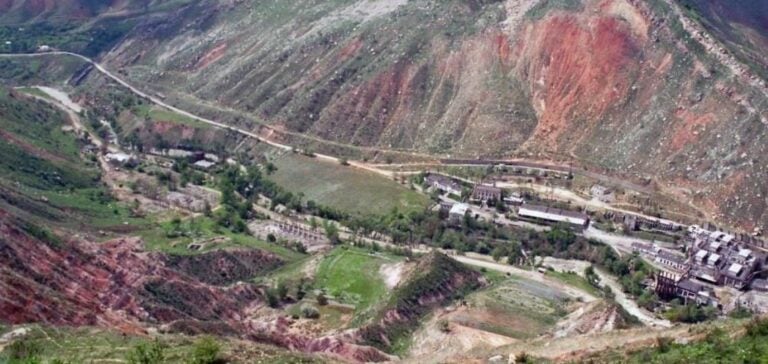Kyrgyzstan, a former Soviet republic in Central Asia, recently lifted a 2019 ban on uranium and thorium mining. This decision is intended to stimulate an economy weakened by several recent crises. The government justified this measure by the urgent need to diversify its sources of revenue, after the severe economic consequences of events from 2020 to 2023, including the COVID-19 pandemic, high inflation, and sanctions against Russia for its invasion of Ukraine.
A heavy nuclear past
Uranium is a sensitive issue in Kyrgyzstan because of its nuclear heritage under the Soviet Union. The country still suffers from the after-effects of uranium mining, with 92 sites containing several million cubic meters of toxic and radioactive waste. Despite these risks, the authorities are seeking to reassure the population that these operations are safe, particularly in the Issyk-Koul region, which is rich in precious metals.
Projects and Challenges
Prime Minister Akylbek Japarov emphasized the country’s interest in extracting titanomagnetite, a strategic mineral for “taking the country to another level of development”. However, the lifting of the ban has met with mixed reactions. In 2019, uranium mining was banned following anti-nuclear protests in the north of the country.
Collaboration and Safety
In Central Asia, nuclear waste management is a major issue. Decontamination operations are being carried out jointly with Rosatom, the Russian nuclear giant. Rosatom is also in the running to build the first nuclear power plants in Kazakhstan, Kyrgyzstan and Uzbekistan. However, recent incidents, such as the fall of a Rosatom truck into a Kyrgyz river in early June, raise questions about the safety of nuclear operations in the region.
Future implications
The decision to lift the ban on uranium mining in Kyrgyzstan could have significant repercussions for the economy and the environment. The population remains cautious, due to the country’s nuclear past and the risks associated with the extraction of radioactive ores. The government will have to balance economic needs with environmental imperatives to ensure sustainable development.
The move marks a turning point in Kyrgyzstan’s energy policy, as the country seeks to capitalize on its natural resources while navigating the complex challenges posed by the Soviet nuclear legacy and current economic pressures.






















